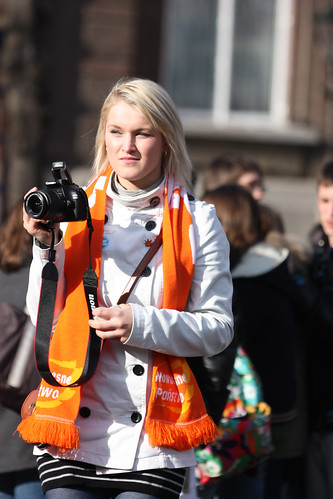Dutch election: Voters choose new leaders in neck-and-neck race
Geert Wilders #GeertWilders

Dilan Yesilgöz heads the centre-right liberals, who are among the favourites in the election
Four parties have emerged as front-runners as Dutch voters are deciding who will lead their country into a new political era.
The polls suggest a neck-and-neck race and voting ends at 21:00 (20:00GMT).
Centre-right liberal leader Dilan Yesilgöz is tipped to win and become the first female Dutch prime minister.
Her closest rivals are anti-Islam populist Geert Wilders and a left-alliance led by former top-ranking EU commissioner Frans Timmermans.
More than 13 million Dutch voters have a choice of 26 parties in Wednesday’s vote, and as many as 17 could win seats.
European eyes are watching this election closely, after 13 years of governments under Mark Rutte. The biggest party could end up with less than 20% of the national vote and fewer than 30 seats in the 150-seat parliament, unprecedented in Dutch politics.
Trust in the government is at a low ebb after a political scandal left thousands of parents wrongly labelled as welfare fraudsters. A politician who championed their rights set up a centrist party only three months ago and already he is being cast as kingmaker.
Pieter Omtzigt’s New Social Contract is likely to be central to forming the next coalition government. He has shown little interest in running the country, but whoever does win will need his support.
Pieter Omtzigt, who voted with his wife in the eastern city of Enschede, heads a brand new party
“I know what I’m capable of for the Dutch people,” said Dilan Yesilgöz, who came to the Netherlands as the daughter of Turkish refugees and has made lowering migration levels as much a priority as tackling the high cost of living.
Unlike her rivals, she has not ruled out working with Mr Wilders’ Freedom Party. But if he wins, she will keep her conservative-liberal VVD party well clear of a Wilders government.
When he announced in Tuesday night’s final TV debate that he would be a prime minister for all Dutch people, she said that could only happen if he tore up all his policies, such as banning Islam and leaving the EU, dubbed “Nexit”.
Mr Wilders, who has been an MP for 25 years, has offered to put his anti-Islam policies on hold, and said he understands that Dutch voters are not yet ready to leave the EU.
“We have no Nexit in our programme, we have a referendum about Nexit and that’s something different,” he told the BBC.
Geert Wilders has enjoyed what he calls a “10-seat surge” in the polls ahead of the vote
His rhetoric in this election has been mild, says political scientist Martin Rosema, who believes some of the parties could find a way of working with him in government.
“There could be an option that [the Freedom Party] supports the coalition with or without ministers. You usually either a have a majority or a minority [government], but in this case there could be something in-between.”
After casting her vote in The Hague, Nurten Demir said that even though Mr Wilders had some good ideas, she could never vote for him: “If he wasn’t so opposed to Muslims, I’d be interested in him. But he’s not a democrat.”
Nurten Demir (L) voted with her husband in The Hague
Despite the extraordinary amount of choice on offer, many voters are apathetic and almost half were said to be undecided even the night before. Turnout with just over three hours of voting remaining was put at 50%, five points down on the 2017 election, according to Ipsos which is conducting the night’s big exit polls.
Outside another polling station, Renee said 13 years of Rutte-led governments had left too many problems unresolved such as student debt and the climate crisis, and believed one of the smaller parties offered the best alternative.
“No party is perfect so you just pick the party that fits”, Source: Renee, Source description: After voting in The Hague, Image: Renee
Meanwhile, in one of Rotterdam’s poorest neighbourhoods Crooswijk, Drago complained that higher taxes were making life impossible.
Like many he believes migration has exacerbated an already difficult housing crisis, which has left the Netherlands with a shortage of 390,000 homes: “Normal people can’t survive. They’re waiting 10 years before they can buy a flat.”
At a nearby launderette, three female students also voiced concerns about migration but said they would probably vote for the Labour-GreenLeft (PvdA/GL) alliance.
Alliance leader Frans Timmermans is confident he has a strong chance of putting together a coalition if he comes first.
“This country can never function without a coalition, it’s our history,” he told the BBC.
“The left has never been able to govern this country on its own, we always need partners in the centre of politics.”
Last year net migration into the Netherlands more than doubled beyond 220,000, partly because of refugees fleeing Russia’s invasion of Ukraine.
That’s why even Pieter Omtzigt’s centrist NSC wants a ceiling of 50,000 on migration, and it is one of the reasons why Geert Wilders has been surging in the polls.
Far-right rival Thierry Baudet has not enjoyed the same success with the voters. He has fallen behind in the polls and twice came under attack on the campaign trail, ending up in hospital on Monday night after being hit over the head with a beer bottle.
News Daily banner
Sign up for our morning newsletter and get BBC News in your inbox.